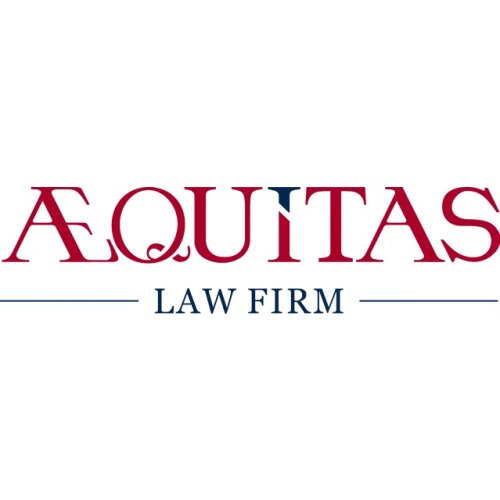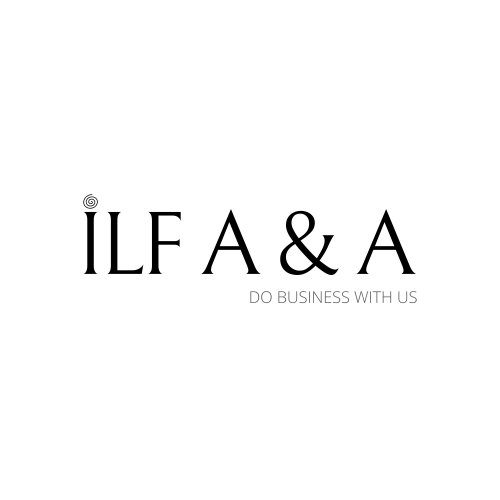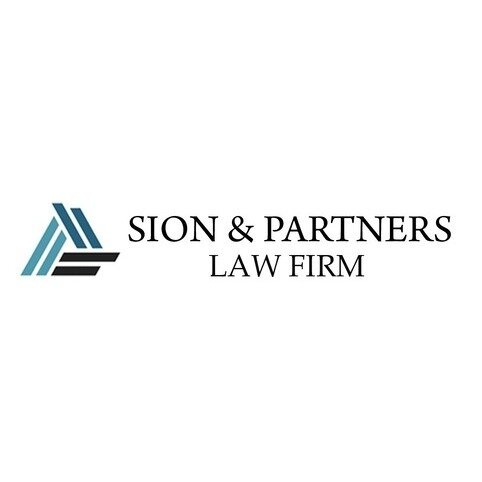Best Sanctions & Export Controls Lawyers in Kazakhstan
Share your needs with us, get contacted by law firms.
Free. Takes 2 min.
Or refine your search by selecting a city:
List of the best lawyers in Kazakhstan
About Sanctions & Export Controls Law in Kazakhstan
Sanctions and export controls are essential components of Kazakhstan's legal framework for regulating the cross-border flow of goods, services, and technologies. These laws are designed to safeguard national security, uphold Kazakhstan's international obligations, and help prevent illicit activities such as proliferation of weapons, terrorism financing, and other threats to international peace. Kazakhstan is a member of multiple international organizations, including the United Nations and the Eurasian Economic Union, and it implements both domestic and international sanctions regimes. The country's approach to export controls focuses on sensitive items such as military equipment, dual-use goods, and certain raw materials.
Why You May Need a Lawyer
Navigating sanctions and export controls can be complicated for individuals and businesses alike. You may require legal assistance in the following situations:
- If your business is involved in exporting or importing goods and you are unsure whether the items are subject to controls or sanctions.
- If you receive correspondence from regulatory authorities regarding a potential violation of export control or sanctions law.
- If your customer, vendor, or business partner appears on a restricted or sanctioned list.
- If you plan to lend technology, intellectual property, or technical know-how to a foreign entity.
- If you wish to challenge or appeal a government decision on denied export permissions or sanctions enforcement.
- If your financial assets have been frozen under a sanction regime.
- If you are conducting due diligence as part of a merger, acquisition, or other major transaction in industries potentially affected by sanctions.
- If there are new or changing international sanctions that may affect your business operations.
Local Laws Overview
Kazakhstan's legal framework for sanctions and export controls is shaped by both domestic legislation and its international commitments. Key aspects include:
- Domestic Regulation: Kazakhstan has adopted laws that regulate the export and import of goods, services, and technologies of strategic importance. Licenses are often required for the export of sensitive or dual-use goods.
- International Commitments: As a United Nations member, Kazakhstan enforces all mandatory UN Security Council sanctions. It also implements requirements under the Eurasian Economic Union, which adds another layer of compliance.
- Control Lists: The government maintains a list of controlled goods and technologies, including military items, dual-use technologies, nuclear materials, and chemical agents.
- Sanctioned Parties: Entities and individuals under sanctions may be subject to asset freezes, travel bans, and restrictions on business activities.
- Licensing and Permissions: Exporters must obtain permits for controlled items. Authorities regularly update lists of controlled items and issue specific recommendations.
- Customs and Border Enforcement: Customs authorities play a crucial role in enforcing export controls, including checking for the proper documentation and clearance.
- Penalties: Noncompliance can result in serious consequences, including fines, confiscation of goods, suspension of export activities, or even criminal prosecution in severe cases.
Frequently Asked Questions
What are sanctions?
Sanctions are legal measures imposed by governments or international bodies to restrict activities with certain countries, entities, or individuals. They often take the form of asset freezes, trade restrictions, or travel bans.
What are export controls?
Export controls refer to laws and regulations aimed at restricting the export of certain goods, technologies, or services for reasons of national security, non-proliferation, or international commitments.
Which items are subject to export controls in Kazakhstan?
Kazakhstan controls exports of military goods, dual-use items (products with both civilian and military uses), sensitive technologies, nuclear materials, and certain chemicals. The government publishes an official control list.
How can I find out if my product is controlled or subject to sanctions?
You should consult Kazakhstan's official lists of controlled goods and sanctioned parties. Legal professionals and authorities such as the Ministry of Industry and Infrastructure Development can assist in making this determination.
What is a dual-use item?
A dual-use item is a good, technology, or software that can be used for both civilian and military purposes, and is often subject to extra scrutiny in international trade.
How do I obtain a license for exporting controlled items?
You must apply to the relevant governmental authority, providing details of the goods, recipients, and end-use. Approvals are granted if all legal requirements are met and there are no sanction restrictions.
What are the penalties for violating sanctions or export controls in Kazakhstan?
Penalties can range from administrative fines to confiscation of the goods, suspension of business activities, and in severe cases, criminal prosecution resulting in imprisonment.
Do Kazakhstan's laws follow international sanctions?
Yes, Kazakhstan implements mandatory United Nations Security Council sanctions and adheres to the requirements of the Eurasian Economic Union.
Can sanctions or export controls impact financial transactions?
Yes, sanctions often include restrictions on financial transactions, freezing of assets, and requirements for enhanced due diligence with respect to sanctioned individuals or entities.
What should I do if I am notified of an alleged violation?
Seek legal advice immediately. A lawyer experienced in sanctions and export controls can guide you through the investigation process, protect your rights, and help minimize potential penalties.
Additional Resources
If you need more information or support concerning sanctions and export controls in Kazakhstan, the following resources are recommended:
- Ministry of Industry and Infrastructure Development of the Republic of Kazakhstan: The main state body overseeing the implementation of export control policies and licensing issues.
- Ministry of Foreign Affairs of the Republic of Kazakhstan: Provides updates on Kazakhstan's international obligations, including sanctions adopted under the United Nations.
- State Revenue Committee of the Ministry of Finance: Oversees customs and border enforcement related to export and import controls.
- Chamber of Commerce of Kazakhstan: Offers guidance and advice for businesses involved in international trade.
- United Nations Security Council Sanctions Committees: The main international source for official sanction lists and updates relevant to Kazakhstan.
Next Steps
If you require legal assistance regarding sanctions or export controls in Kazakhstan, take the following steps:
- Collect all relevant documentation, including contracts, correspondence with authorities, and lists of goods or entities involved.
- Contact a qualified lawyer who specializes in sanctions and export controls in Kazakhstan.
- Explain your specific situation and provide all requested information promptly to your legal counsel.
- Follow your lawyer's recommendations regarding communications with authorities and compliance procedures.
- Stay informed about updates to national and international sanctions regimes that may impact your business operations.
- Consider regular compliance training for your staff if your business is frequently involved in cross-border transactions.
Taking proactive legal advice is the best way to avoid costly penalties and ensure your activities remain compliant with Kazakhstan's evolving legal environment regarding sanctions and export controls.
Lawzana helps you find the best lawyers and law firms in Kazakhstan through a curated and pre-screened list of qualified legal professionals. Our platform offers rankings and detailed profiles of attorneys and law firms, allowing you to compare based on practice areas, including Sanctions & Export Controls, experience, and client feedback.
Each profile includes a description of the firm's areas of practice, client reviews, team members and partners, year of establishment, spoken languages, office locations, contact information, social media presence, and any published articles or resources. Most firms on our platform speak English and are experienced in both local and international legal matters.
Get a quote from top-rated law firms in Kazakhstan — quickly, securely, and without unnecessary hassle.
Disclaimer:
The information provided on this page is for general informational purposes only and does not constitute legal advice. While we strive to ensure the accuracy and relevance of the content, legal information may change over time, and interpretations of the law can vary. You should always consult with a qualified legal professional for advice specific to your situation.
We disclaim all liability for actions taken or not taken based on the content of this page. If you believe any information is incorrect or outdated, please contact us, and we will review and update it where appropriate.
Browse sanctions & export controls law firms by city in Kazakhstan
Refine your search by selecting a city.













